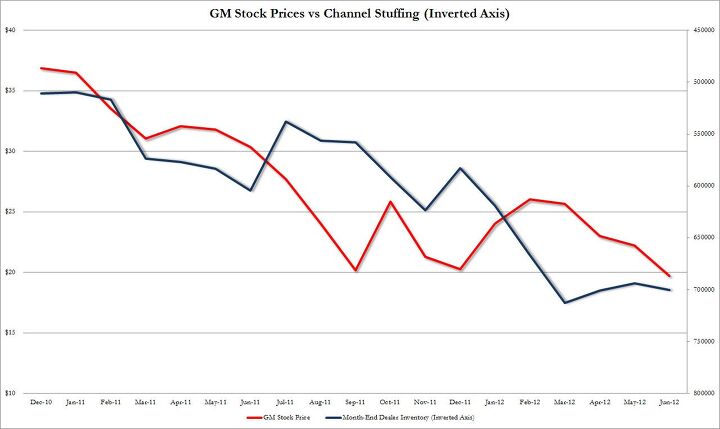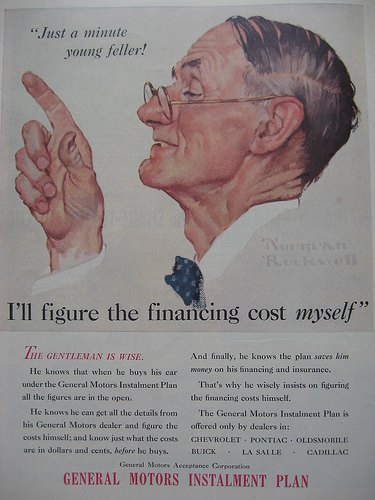#Finance
GM Bumps Up Q3 Results Prior To Election Day
General Motors hasn’t announced their Q3 financial results prior to November in six years, but they intend to announce them on October 31st, 2012 – just prior to the U.S. general election on November 6th.
Chart Of The Day: Channel Stuffing Bonanza
Today’s Chart comes from finance blog Zero Hedge, which has taken a periodic interest in General Motors channel stuffing endeavors. While we don’t normally report on stock prices here at TTAC, this one is worth mentioning.
Americans Paying Off Car Loans Before Mortgage, Credit Cards
Among all the loans being held by Americans, car notes appear to have lower delinquency rates, according to a report by the Associated Press.
Hammer Time: Dave Ramsey, Bad Math & Statistical Quagmires
Dave Ramsey has done an awful lot of good in this world. Millions have been helped. Billions in debt has been eradicated forever. Plus now a lot of folks finally understand that consumer debt is little more than a barnacle of financial enslavement. When it comes to frugality and avoiding consumer spending traps, Dave Ramsey offers a lot of solid advice.
So having said that, will this article be another soulless puff piece about the virtues of Dave Ramseys methods? Hell no!. As much as I love the fact that he helps so many, I think his math is horrific and his conclusions are dead wrong. .
At least when it comes to cars.
GM's AmeriCredit Deal: Awaiting Approval
Now that GM’s acquisition of the subprime lender AmeriCredit has had 24 hours to sink in, howls of protest are starting to surface. The charge is being led by Senator Chuck Grassley, who has requested a review of the deal from the SIGTARP, saying
If GM has $3.5 billion in cash to buy a financial institution, it seems like it should have paid back taxpayers first. After GM’s experience with GMAC, which left GM seeking a taxpayer bailout, you have to think the company and, in turn, the taxpayers would be better off if GM focused on making cars that people want to buy and stayed clear of repeating its effort to make high-risk car loans.
And though Grassley’s criticism could be read as mere partisan gamesmanship from a leader of “the party of no,” there are a number of very good reasons for opposing the deal.




















Recent Comments